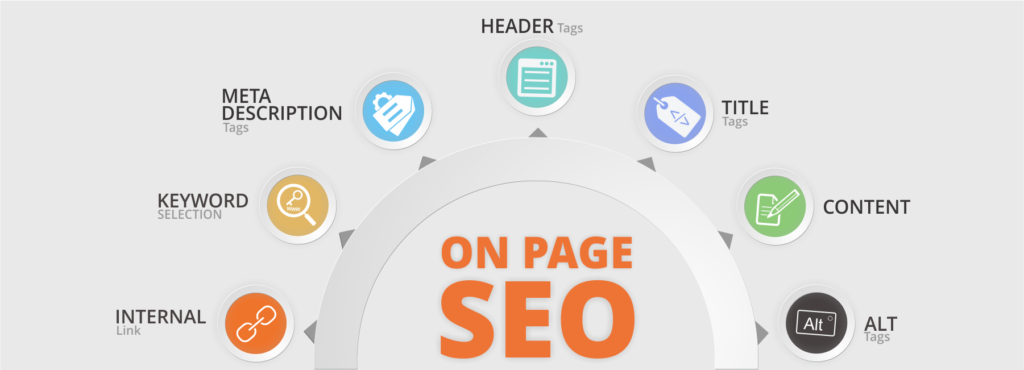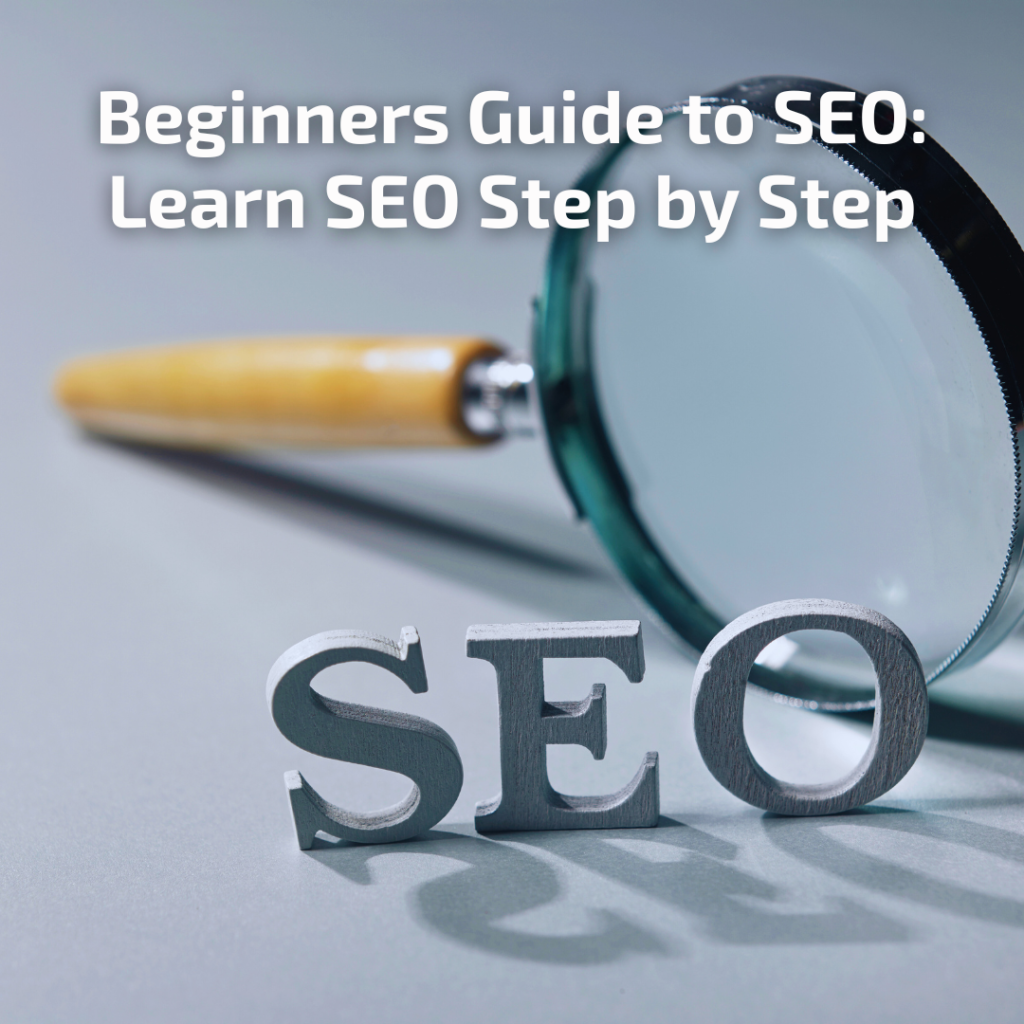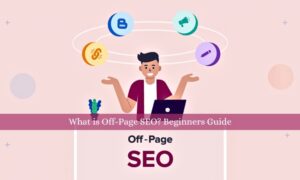What is SEO?
SEO (search engine optimization) is a process of optimizing your website to make it more visible to improve your rankings in the search results related to your business by getting more organic (non-paid) traffic. From a huge database of internet resources such as Web Pages, Newspapers, Programs, Images, etc. It only does organic search results and does not include PPC (Pay Per Click) optimization.

5 Steps in SEO
(1) Keyword Research
(2) Content Creation
(3) On-Page Optimization
(4) Off-Page Optimization
(5) Website analytics
Keyword Research
Keywords are essential to Google search engine optimization (SEO). If nobody is searching for what you’re writing about, you won’t get traffic from Google—no matter how hard you try.
Keyword research is the process of understanding which keywords your target customers are using to search for your products, services, or content. It involves analysing, comparing, and prioritizing the best keyword opportunities for your website. Website owners who do not create a sitemap make an error that is likely a big part of why 90.88% of pages on their sites receive no traffic from Google.

Content Creation
Content creation is the chief responsibility of a content marketer. A content writer’s goal is to generate traffic and increase sales through quality content. By creating this kind of valuable content, businesses can reach a wider audience and build credibility for their brand. Creating quality educational content will increase your chances of conversion by 131%.
Content creation is one of the best ways to use inbound marketing to reach new and existing customers. Creating content provides free and using the information to your audience and attracting potential customers to your website, ultimately retaining existing customers through quality engagement.
Your company can generate ROI by implementing a content marketing strategy.
Research has shown that content marketing brings in 3X more leads than traditional marketing, costs 62% less, and produces 126% more small businesses. One study revealed that 61% of online purchases are from customers who read a blog, and companies that publish 16+ blog posts per month get 3.5X more traffic than those which post four or more infrequent blogs per month.
On-Page Optimization
On-page optimization is a component of search engine optimization (SEO). It encompasses the practice of optimizing your site’s content to rank higher on a search engine results page (SERP). To achieve higher rankings for your site, create highly relevant and valuable content that meets users’ needs.
Because on-page search engine optimization (SEO) refers to all the elements of SEO that you can control, website owners should resolve any issues with the technical aspects of their site, meta tags, and the quality of their content immediately.
Update the page title with relevant keywords, add alt attributes and descriptions to images and videos, fix any errors in HTML code, and optimize the page for different devices, browsers, and speeds.

Off-Page Optimization
Off-page SEO means optimizing a website to achieve better visibility in search engine results pages (SERPs) based on external factors such as link building, mentions on other websites, and even social media activity. As a result, off-page SEO consists of a series of actions designed to improve the online profile of your business and create an image that is appealing to potential customers.
Off-page SEO factors are as important as on-page optimization. Off-page SEO factors include link building, social media presence, blogging/vlogging, and videos. These tools help you get more traffic to your website by getting exposure on social media and other high authority sites. By incorporating off-page search engine optimization into your overall SEO plan, you will achieve better rankings for your site on search engines like Google & Bing.
Off-page optimization includes creating links to your website on third-party websites and placing keywords in the anchor text of those links; creating links to your website on authoritative websites and building links to your website on related sites, as well as submitting your website to search engines and Web directories.

Website or SEO analytics
SEO analytics is a set of tools and procedures for analyzing raw data to inform your SEO efforts. It helps you prioritize tasks, get approval for SEO campaigns, and make better decisions to improve your SEO.
Search engine optimization (SEO) analytics encompasses several stages of an SEO project. On the one hand, SEO analytics involves using keyword research and other market research to determine what people are searching for on search engines. SEO analysis provides valuable data for developing goals and strategies.

Conclusion:
If you wish to establish a career in Digital Marketing and Don’t know where to start then Moving Digits is the the best guide.
Article Credit – Bhawna Obhan | Student of Digital Marketing Offline Course









